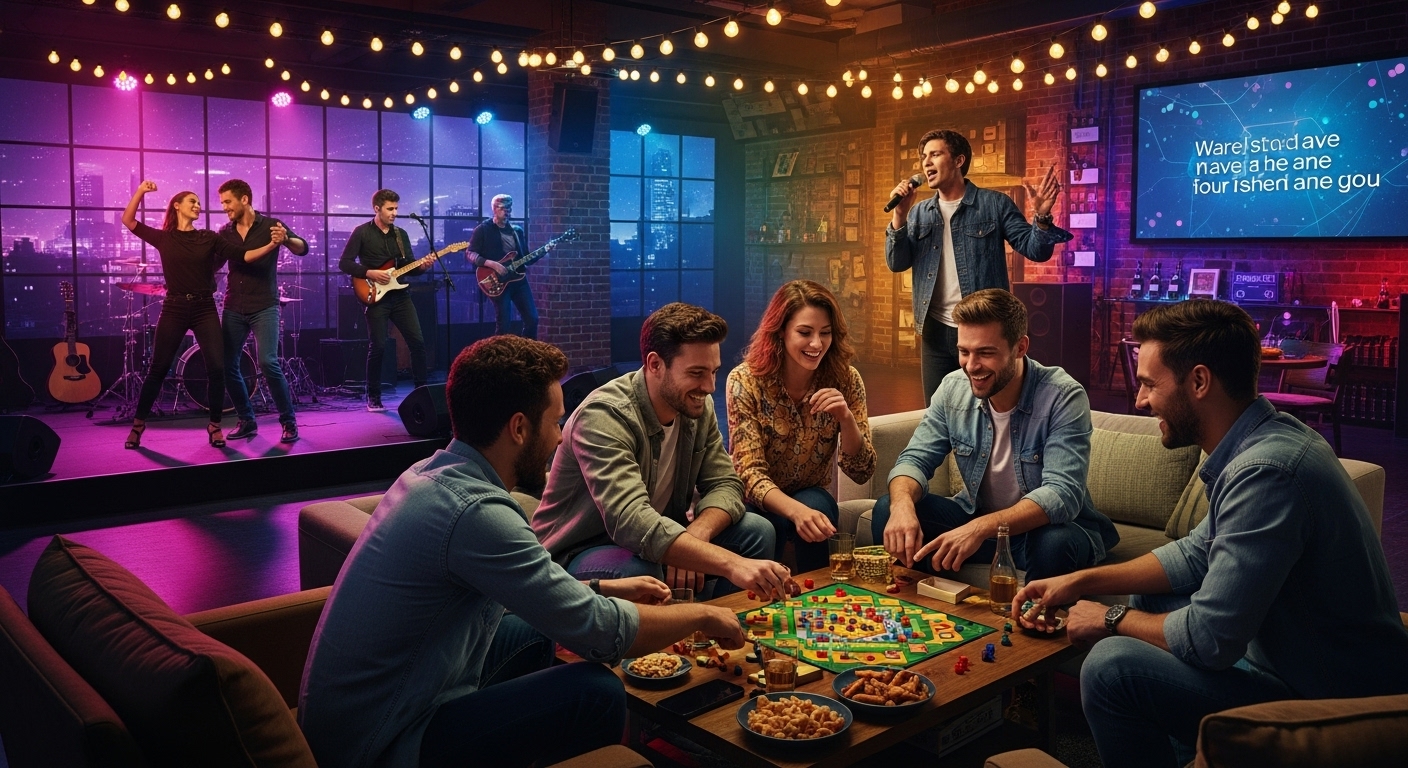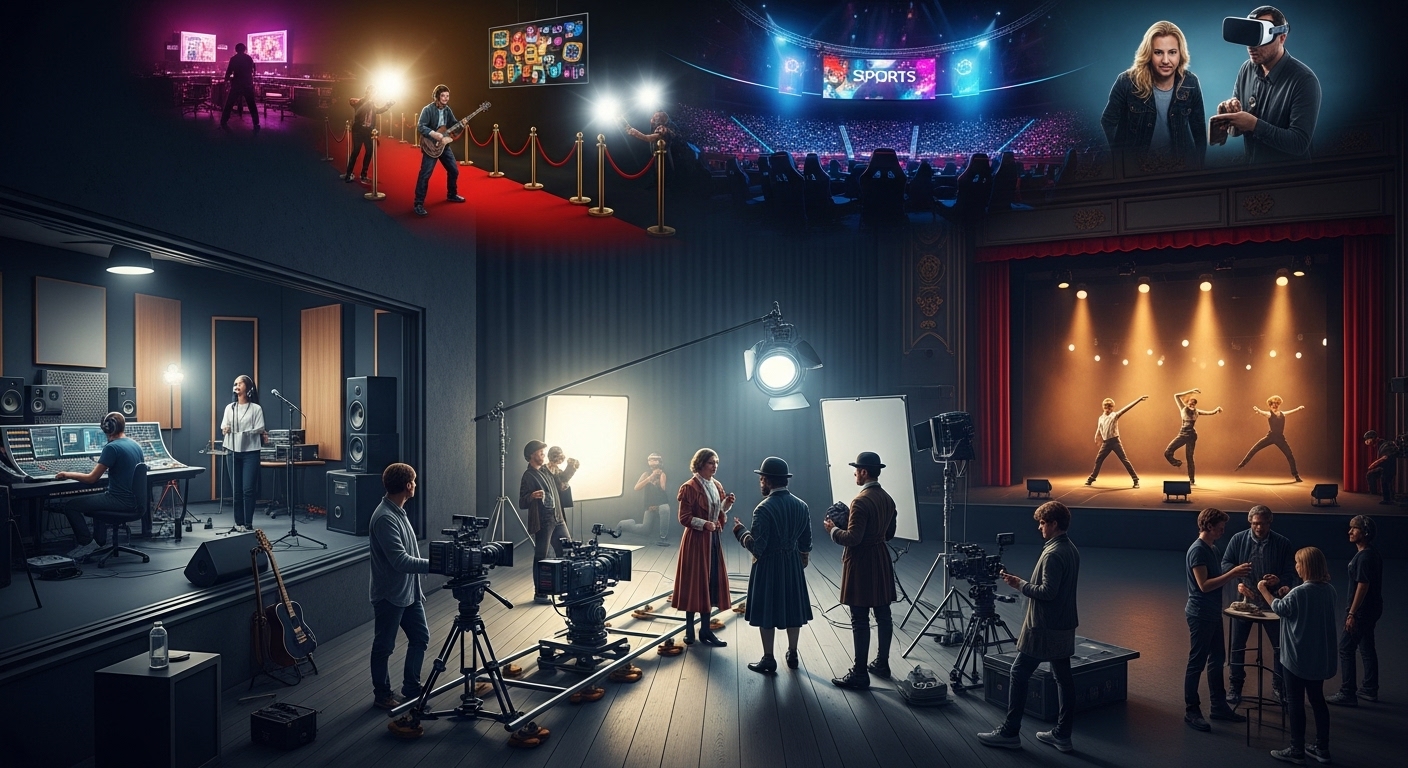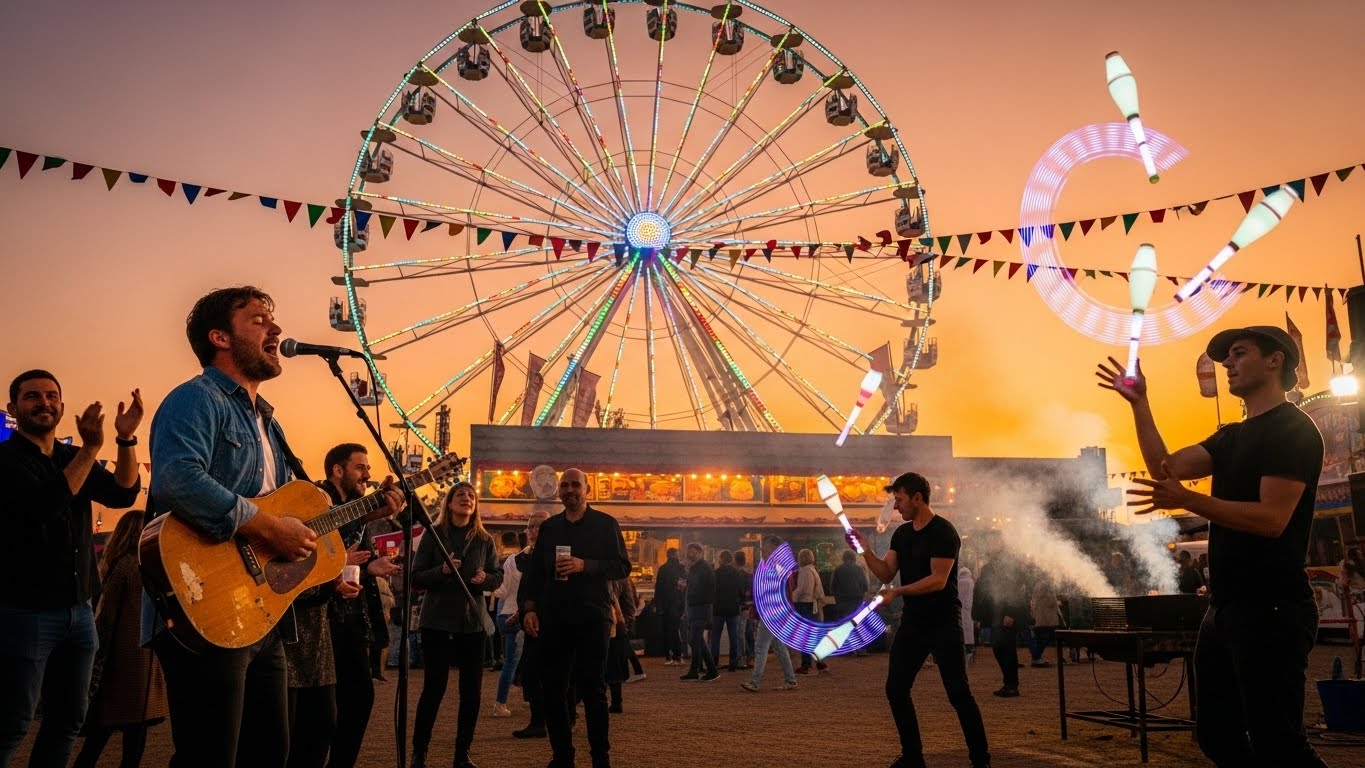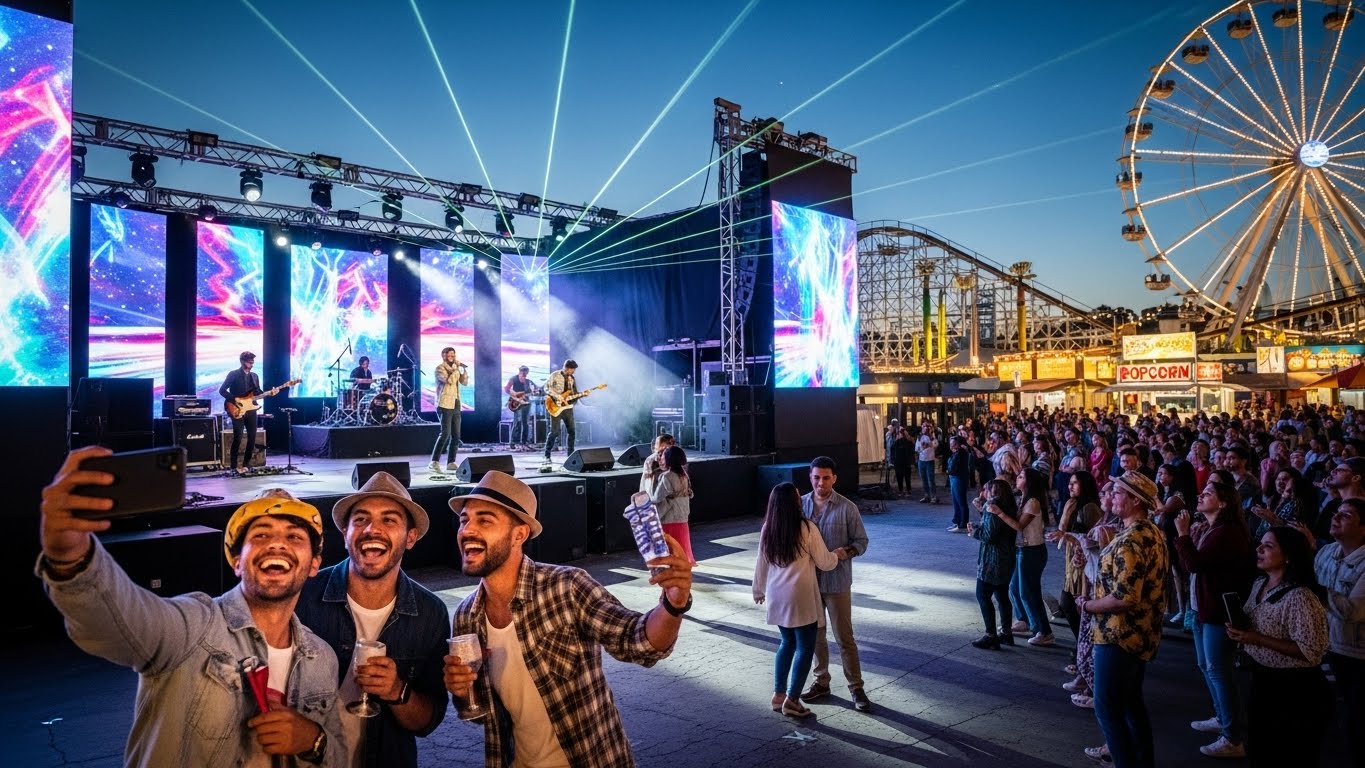The Entertainment Landscape: How Modern Media is Shaping Our World

Entertainment has always been an essential part of human culture. From the earliest cave paintings to the vast array of digital content available today, people have sought to be entertained, informed, and inspired. The entertainment industry, which encompasses everything from movies, television, and music to gaming and digital media, has grown into a global powerhouse that influences virtually every aspect of our lives. With the rise of new technologies, shifting consumer preferences, and the global nature of modern media, entertainment has become more accessible, diverse, and immersive than ever before.
In this blog post, we will explore the evolution of the entertainment industry, how it has adapted to the digital age, the impact of new technologies, and the ways in which entertainment shapes our culture and society. We’ll also take a look at the various sectors within entertainment and how they continue to evolve in the 21st century.
The Evolution of Entertainment: From Traditional to Digital
For centuries, entertainment was primarily local and often tied to social and communal activities. In ancient times, entertainment consisted of live performances such as theater, dance, and music. People would gather in communal spaces, like amphitheaters or village squares, to watch plays, listen to music, or watch athletic competitions. These forms of entertainment were often tied to cultural or religious events, and they played an important role in bringing people together.
As societies advanced, so did entertainment. With the invention of printing press technology in the 15th century, people began to consume entertainment in the form of literature. The rise of novels, poetry, and newspapers introduced a new medium of entertainment that could be enjoyed individually, rather than in groups. It was during this time that the foundations of modern media were laid.
The industrial revolution in the 18th and 19th centuries led to the advent of mass entertainment. Innovations such as the radio, film, and television made it possible to entertain large audiences from the comfort of their homes. The 20th century witnessed the explosion of Hollywood as the epicenter of global cinema, the rise of pop music, and the widespread popularity of television, which became the dominant form of home entertainment for decades.
However, the real transformation began in the late 20th century with the advent of the internet. The digital age introduced a new era of entertainment, characterized by on-demand access, digital streaming platforms, and the ability to consume media at our own convenience. The shift from traditional media consumption to digital streaming platforms like Netflix, Hulu, Spotify, and YouTube has radically changed the way we experience entertainment.
Today, entertainment is no longer confined to traditional forms such as movies, television shows, and music. It spans across various digital platforms, including online video content, social media, mobile gaming, and interactive experiences. Consumers now have an unprecedented level of choice and control over the type of entertainment they consume and how they engage with it.
The Impact of Streaming: The Shift in Media Consumption
One of the most significant changes in the entertainment landscape has been the rise of streaming services. Streaming has fundamentally altered the way we consume media, making it easier than ever before to access a vast library of movies, TV shows, music, and other content at the touch of a button. The impact of streaming has been felt across every corner of the entertainment industry, from film and television to music, gaming, and even live sports.
In the past, people would have to rely on cable TV subscriptions, physical media (like DVDs and CDs), or even attend a cinema to enjoy their favorite entertainment. Today, platforms like Netflix, Amazon Prime, Disney+, and Hulu offer viewers the ability to stream thousands of movies and TV shows at any time, from virtually any device. This has led to the decline of traditional cable TV, as more consumers opt for streaming services that allow them to watch content on-demand, without the need for a cable package.
The rise of streaming has also had a profound impact on how television shows and movies are produced. With the ability to release entire seasons of a show at once, platforms like Netflix have popularized the concept of “binge-watching,” where viewers consume multiple episodes in one sitting. This has influenced the way shows are written, with many creators designing episodes to keep viewers hooked, ensuring they want to keep watching.
In addition to traditional films and TV shows, streaming platforms have begun producing original content. Shows like Stranger Things, The Crown, and The Mandalorian have not only garnered massive audiences but also won prestigious awards, solidifying the value of streaming platforms as serious content producers. This shift has led to a boom in original programming and the democratization of content creation, allowing more voices and unique stories to be heard.
For the music industry, streaming services like Spotify and Apple Music have disrupted traditional music consumption. Gone are the days of purchasing physical albums or downloading individual tracks. Now, listeners can access millions of songs on-demand, creating personalized playlists and discovering new artists with ease. While streaming has been beneficial for many artists in terms of exposure, it has also led to debates over the fair compensation of musicians, as streaming services often offer lower royalties than traditional album sales.
The Role of Social Media in Modern Entertainment
In the digital age, social media has become an essential platform for entertainment consumption, distribution, and interaction. Social media platforms such as Instagram, Twitter, TikTok, and YouTube have given rise to a new generation of influencers and content creators, who use these platforms to build massive followings and engage with their audiences in real time.
Influencers and content creators have become some of the most prominent figures in modern entertainment. With the power to reach millions of people, these individuals can create viral content, promote products, and even become household names. The rise of social media platforms has given people more opportunities to create their own content and share it with the world, leveling the playing field and allowing anyone with a smartphone and creativity to participate in the entertainment industry.
Social media has also revolutionized the way fans interact with their favorite celebrities, actors, musicians, and athletes. Through platforms like Twitter and Instagram, fans can get a behind-the-scenes look at their favorite stars’ lives, participate in live Q&A sessions, and even engage with them directly. This level of access has fostered a deeper connection between celebrities and their audiences, helping to cultivate loyalty and fan engagement in new and exciting ways.
Furthermore, platforms like YouTube and TikTok have introduced entirely new forms of entertainment, where creators can produce content ranging from music videos and short skits to educational tutorials and gaming livestreams. These platforms have created massive online communities, where people with shared interests can come together to consume and create content.
The Gaming Industry: From Hobby to Global Phenomenon
Gaming, once considered a niche hobby for tech enthusiasts, has grown into one of the most lucrative and influential sectors in the entertainment industry. Video games have evolved from simple arcade machines to fully immersive, interactive experiences that rival the scale and scope of traditional media like films and television. The gaming industry now generates billions of dollars in revenue annually, and its global reach is expanding rapidly.
The rise of online multiplayer gaming, esports, and mobile gaming has propelled the industry to new heights. Esports, in particular, has become a massive phenomenon, with competitive gaming tournaments drawing millions of viewers and offering multi-million-dollar prize pools. Games like League of Legends, Fortnite, Dota 2, and Counter-Strike have turned professional gamers into celebrities, with sponsorships, live-streaming deals, and merchandise sales contributing to the industry’s growth.
Mobile gaming has also played a huge role in the expansion of the gaming industry. With the proliferation of smartphones, millions of people now have access to games that can be played anytime and anywhere. Games like Candy Crush, Pokémon Go, and PUBG Mobile have become cultural phenomena, attracting millions of players from all walks of life.
Additionally, virtual reality (VR) and augmented reality (AR) are transforming the way we experience games. VR gaming allows players to immerse themselves in entirely new worlds, while AR games blend the real world with digital elements, creating interactive experiences that feel more lifelike. As technology continues to improve, the line between the real world and the virtual world will continue to blur, offering new opportunities for entertainment and storytelling.
The Future of Entertainment: What’s Next?
As we look to the future, it’s clear that entertainment will continue to evolve in exciting ways. Technology will play a major role in shaping the entertainment landscape, and new innovations in areas such as artificial intelligence, virtual reality, and 5G will open up new possibilities for content creation, distribution, and consumption.
One area that holds significant potential is immersive entertainment. The rise of virtual reality, augmented reality, and mixed reality is paving the way for more interactive and engaging entertainment experiences. In the future, we may see the rise of fully immersive entertainment venues where users can participate in interactive stories, live performances, and gaming experiences in real-time.
Another exciting development is the growth of artificial intelligence in entertainment. AI is already being used to personalize content recommendations, create digital avatars, and even generate music and artwork. As AI technology continues to advance, it will play an even bigger role in content creation, storytelling, and audience engagement.
The continued rise of streaming platforms, social media, and gaming will only further blur the lines between different forms of entertainment. We may see more cross-platform experiences that allow users to seamlessly switch between movies, music, games, and social media content, creating a more integrated and immersive entertainment ecosystem.
Conclusion
The entertainment industry has come a long way, evolving from traditional forms of entertainment like theater and film to the digital, interactive, and on-demand experiences we enjoy today. With the rise of streaming, social media, gaming, and new technologies, entertainment has become more accessible, diverse, and immersive than ever before.
As we look to the future, it’s clear that entertainment will continue to evolve and adapt to new technological advances and changing consumer preferences. Whether it’s through streaming platforms, social media, or virtual reality, the entertainment landscape is poised for even more innovation, offering endless possibilities for how we engage with and experience the content we love. The entertainment industry will continue to shape our culture, connect us with others, and provide us with a much-needed escape from the everyday, ensuring its place at the heart of our lives for years to come.



